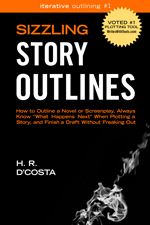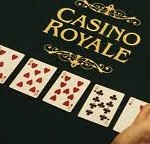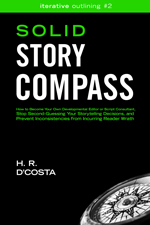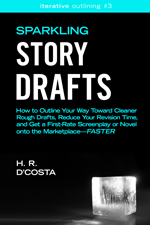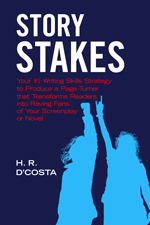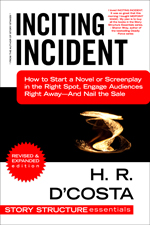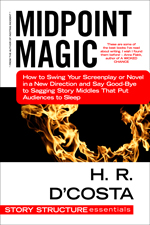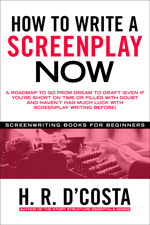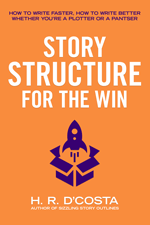Recently, I reviewed the body switching comedy The Change-Up, written by screenwriting duo Scott Moore and Jon Lucas, who also wrote a movie called The Hangover. Perhaps you’ve heard of it? The Change-Up starred Jason Bateman as a lawyer about to make partner who switches bodies with his slacker best friend, Mitchell, an aspiring actor who just scored a role in an upcoming porn film. The movie didn’t do so great at the box office, despite its comedic pedigree. One of the reasons has to do with the main characters’ professions. Lawyer and actor — how many times have we seen these careers on screen before? Although these particular job situations have comic potential, and I can see why the screenwriters used them, they didn’t feel fresh.
So it got me thinking…what kind of approach should screenwriters have when choosing a profession for their protagonists? My answers are divided into two parts. Today’s post addresses whether or not your main character actually needs a job and what kind of screenplay objectives can be accomplished with a character’s line of work. The second part will give you ideas on where to look to find unique jobs for your screenplay characters, and how to add some originality to your character’s profession…if his job is not so unique.
Do your screenplay characters even need jobs?
It is not essential for your characters, even the protagonist, to have a profession. It feels shocking to write such a statement since having a job is so important in real life. Without one, you can’t meet your basic needs or indulge in material desires. Hopefully, your job also fulfills an innate wish to be productive and sates the spark of ambition residing in most adults (but alas not in some members of the Middleton clan). For many, their line of work is intrinsically tied to their identity. It’s not so much, “I think therefore I am,” but “I work therefore, I am.”
In short, a job, career, profession, metier, whatever name you give it, is a powerful force in our lives. The same is not necessarily true for your screenplay characters. In some scripts, knowing the ins and outs of your character’s job is vital, but for other scripts, it may only warrant a one-line explanation so that your audience’s curiosity is satisfied as to why your protagonist has so much free time on his hands.
To determine if your main character’s job is a key element of your story, you must examine the kind of story you’re trying to tell. In some plots, your character’s professional life IS the story. For example, A Few Good Men wouldn’t have been the successful courtroom drama it was, if its main characters weren’t lawyers. The Devil Wears Prada is the story of a young assistant to a fashion magazine editor, and the abuse she experiences at the hands of her boss. Without incorporating the details of the assistant’s job, you’d have a very truncated second act and none of the humor unique to world of high-fashion.
In the movie Deja Vu, Denzel Washington plays an Alcohol, Tobacco & Firearms agent who investigates the bombing of a ferry by using newly developed technology. This program enables investigators to look at the past in detail…but without the ability to rewind or fast forward. If Denzel’s character wasn’t a special agent, he would not have had access to such expensive technology…nor would he be investigating the ferry bombing. In the classic His Girl Friday, reporter Hildy Johnson is after one thing: an exclusive scoop about the upcoming execution of convicted murderer. Her energetic pursuit plays a central role in the plot, and the newspaper business even functions as another character in the movie.
If you changed the profession of the protagonists in any of these movies, you’d have a radically different story on your hands. That’s how you know if your protagonist’s job is essential to your story. However, in some screenplays, what your main characters do for a living doesn’t matter so much, but how they perform professionally reveals something about their character. In other words, their job is a means to a screenplay end: raising the story stakes, creating irony, or showing personal growth.
Raising the Story Stakes
Your protagonist’s job can heighten the stakes in your screenplay, if for example, she might get the promotion she always wanted if she successfully completes a huge professional project. (And if she fails, she could be fired.) Notice that the profession itself isn’t necessarily crucial to the telling of the story. What matters is if the main character succeeds at her job responsibilities, whatever they may be.
However, getting promotions or getting fired are very common ways to show stakes, perhaps too common. That is one fault I picked with The Change-Up. Jason Bateman’s character, Dave, was about to make partner at his law firm, but his promotion hinged on sealing the deal with a Japanese business man. When Dave switched bodies with his slacker best friend Mitchell, Dave’s promotion was put in jeopardy…which did increase the story’s stakes. But making partner at a law firm is not very original. One way to freshen up this concept is choose a profession which the audience hasn’t seen 100 times before. (Tips on how to achieve this will be in part II of this post.) This way, although the stakes may be familiar to the audience, the professional milieu is not, and your scenes come across as fresh.
Creating Irony
Sometimes your main character’s career is important because it provides him with a skill set he needs in order to vanquish the villain. This most frequently is the case if you’re writing an action or thriller. Indiana Jones, Jason Bourne, and Evelyn Salt would have all likely failed at their story goals if their professional background hadn’t provided them with extensive training and specialized knowledge.
But in some situations, usually in comedy scripts, the main character’s job is at odds with his story goal, creating a delicious sense of irony…and the setup for great comedy gags. For example, in the animated comedy Kung Fu Panda, Po is a chubby, clumsy bear who sells noodles–basically the person least likely to have the discipline and skill necessary to become a kung fu master. In The Hangover, Stu is an uptight dentist, making him the least likely dude to enjoy the vagaries of Vegas as you can see in comedy script tip #5 in Humor Secrets from the Hangover. In the classic comedy Coming to America, Eddie Murphy plays a pampered African prince–again, the person least likely to have the patience to work as a low-level employee at a fast food joint.
The reverse–where the person you’d expect to be a rockstar at a certain job fails miserably–also creates an ironic setup perfect for a comedy. A really good example of this is from a movie being developed by Dreamworks duo Walter Parkes and Laurie MacDonald. Entitled Eat, Sleep Poop, it’s about a successful Hollywood pediatrician who “thought he had the baby thing covered, until it happened to him.” (Pithy summary provided by Scriptmag. Here is the full article, which interviews the screenwriters behind the adaptation, Matt Allen and Caleb Wilson.)
Showing Personal Growth
In many movies, whether dramas or comedies, the protagonist’s line of work is used to show his character arc. Some examples of growth include standing up to a bullying boss, leaving an unfulfilling job which was clung to because it paid the bills, or cutting daddy’s purse strings and standing on his own financially. In Back to the Future, Marty’s antics in 1955 led to a transformation of his dad. At the beginning of the movie, George McFly was bullied by his boss Biff Tannen, but by the end of the film, George was a famous science-fiction writer…and Biff was reduced to a groveling wimp.
In the R-rated comedy Bridesmaids, the plot revolves around the main character, Annie, trying to prove she is as awesome as another woman in her best friend’s bridal party. As such, Annie’s job doesn’t really play a role in the main plot, but it was used to show her growth into a person who “fights back” when life knocked her down. At the beginning of the movie, we learn that she used to own a cake shop, but it went bankrupt when her boyfriend ran off with her savings. Due to this setback, she’s given up on herself and her dream, although she’s a great baker. Instead of finding another way to make a living doing what she loves, she now works at a jewelry store.
But by the end of the movie, Annie starts baking again, which is a symbol that she’s overcome her defeatist attitude. (I should note that the scenes at the jewelry store were used not just to show that Annie had given up on herself. Her conversations with customers also revealed her attitude towards love and her deteriorating relationship with her best friend. Using Annie’s career slump to achieve multiple screenplay objectives is just one of the many reasons why Bridesmaids is such a strong script.)
Despite the screenwriters’ clever use of Annie’s jobs to communicate subtext, Bridesmaids is still a good example of a story where professions don’t really matter. Besides Annie and her love interest, I couldn’t tell you the jobs of any of the other characters. I don’t know if that’s because it was never mentioned or because it was mentioned so quickly that I’ve forgotten the information. Either way, the story was well told without any undue emphasis placed on careers and professions. This approached worked because the plot of Bridesmaids was mainly about resolving conflicts in personal relationships, not about achieving professional goals.
The same can be said for Crazy, Stupid Love, a dramedy starring Steve Carrell as a man who’s just been told by his wife that she wants a divorce. What Carrell and his on-screen wife do for a living is basically inconsequential and only warranted a few minutes of screentime. What is important is how Carrell–and his children–react to his wife’s bombshell.
If your script, like Bridesmaids and Crazy, Stupid Love, is essentially about resolving personal relationships, then what your characters do for a living may be irrelevant. I point this out because it should help you identify where you need to allocate your resources. Don’t waste time envisioning what your protagonist’s office cubicle looks like or naming his co-workers if his job doesn’t even have much of a role in your script.
That’s not to say you should skimp on brainstorming your hero’s backstory. But spend less time generating his resume and more time thinking about his flaws, quirks and dreams…and how he ended up having the messed up and broken relationships he does. Also, if your screenplay is too long, cutting out a job-based subplot may help you trim the fat. But only do this if your story, like Bridesmaids, is mostly about the destruction and restoration of the personal relationships between your movie’s characters.
Final thoughts
A lot of amateur screenwriters stress about choosing the perfect profession for their main characters. But the truth is that your protagonist’s job might not be that relevant to the type of story you’re trying to tell. If that’s the case, focus your efforts on exploring your main character’s personal relationships and vulnerabilities.
On the other hand, your heroine’s line of work can be critical to the unfolding of your story. Alternately, maybe her job isn’t so crucial, but you want to explain briefly how she’s able to afford that trip to the Amalfi coast. If you’re floating in that screenwriting boat, you’ll definitely want to read part II of this post, where I’ll give you tips on where to find ideas for unique jobs for your characters and also how to make professions commonly found in screenplays seem more original.
Work Hair by Evil Erin
